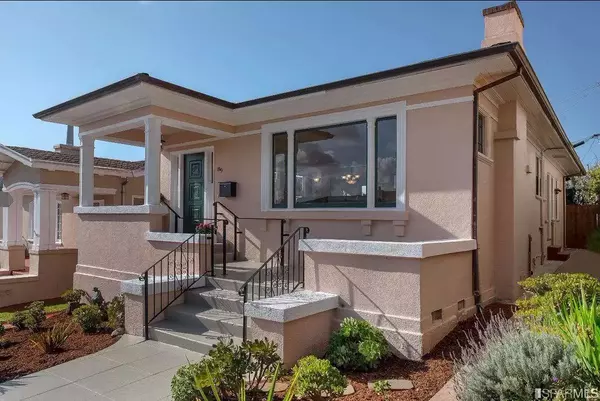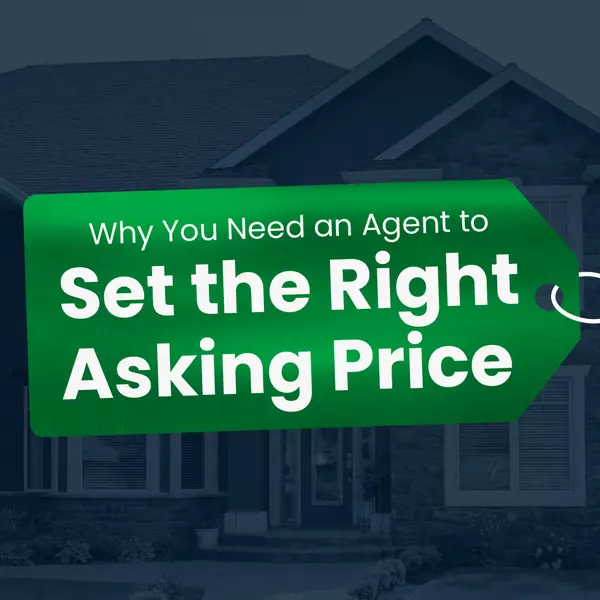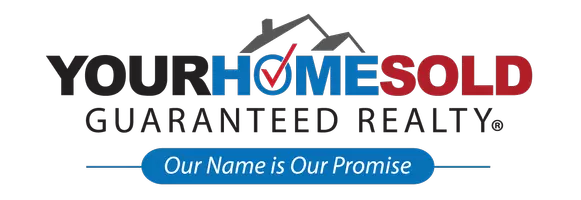

6 Buyer Mistakes
6 Things You Must Know Before You Buy Mortgage Regulations Have Changed . . . Mortgage regulations have changed significantly over the last few years, making your options wider than ever. Subtle changes in the way you approach mortgage shopping, and even small differences in the way you structure your mortgage, can cost or save you literally thousands of dollars and years of expense. Get the Right Information Whether you are about to buy your first home, or are planning to make a move to your next home, it is critical that you inform yourself about the factors involved. Industry research has revealed that there are 6 common mistakes that most homebuyers make in mortgage shopping that can have a significant impact on the outcome of this critical negotiation. If handled correctly, these issues could result in a mortgage that will cost you less over a shorter period of time. 6 Things You Must Know Before Obtaining a Mortgage Before you commit your hard earned dollars to monthly mortgage payments, consider these 6 issues. Effective consideration of these important areas can make your payments work much harder for you. 1. You can, and should, get preapproved for a mortgage before you go looking for a home. Preapproval is easy, and can give you complete peace-of-mind when shopping for your home. Your local lending institution can provide you with written preapproval for you at no cost and no obligation, and it can all be done quite easily over-the-phone. More than just a verbal approval from your lending institution, a written preapproval is as good as money in the bank. It entails a completed credit application, and a certificate which guarantees you a mortgage to the specified level when you find the home you’re looking for. 2. Know what monthly dollar amount you feel comfortable committing to. When you discuss mortgage preapproval with your lending institution, find out what level you qualify for, but also pre-assess for yourself what monthly dollar amount you feel comfortable committing to. Your situation may give you a preapproval amount that is higher (or lower) than the amount of money you would want to pay out each month. By working back and forth with your lending institution to determine what this monthly amount is, and what value of home this translates into at today’s rates, you won’t waste time looking at homes that are not in your price range. 3. You should be thinking about your long term goals, and expected situation, to determine the type of mortgage that will best suit your needs. There are a number of questions you should be asking yourself before you commit to a certain type of mortgage. How long do you think you will own thishome? What direction are interest rates going in, and how quickly? Is your income expected to change (up or down) in the near term, impacting how much money you can afford to pay to your mortgage? The answers to these and other questions will help you determine the most appropriate mortgage you should be seeking. 4. Make sure you understand what prepayment privileges and payment frequency options are available to you. More frequent payments (for example weekly or biweekly) can literally shave years off your mortgage. Simply by structuring your payments so that theycome out more frequently, will significantly lessen the amount of interest that you will be charged over the term. For the same reason, authorized prepayment of a certain percentage of your mortgage, or an increase in the amount you pay monthly, will have a major impact on the number of years you will have to pay and could shorten your payment term considerably These two payment options can cut years off your mortgage, and save you thousands of dollars in interest. However, not every mortgage has these prepayment privileges built in, so make sure you ask the proper questions. 5. Ask if your mortgage is both portable and/or assumable. A portable mortgage, where available, is one that you can carry with you when you buy your next home and avoid paying any discharge penalties. This means that you will not have to go through the entire mortgage process again unless you are making a move up to a much more expensive home. An assumable mortgage is one that the buyer for your home can take over when you move to your next home. This can be a very powerful tool at the negotiating table making it much easier and more desirable for a buyer to buy your home, and again saves you any discharge penalties. 6. You should seriously consider dealing with a Mortgage Expert. Consider dealing only with a professional who specializes in mortgages. Enlisting their services can make a significant difference in the cost and effectiveness of the mortgage you obtain. For example they can make the process faster thereby avoiding costly delays. Typically there is no cost or obligation to enquire.
Read More

Empty Nester Report
Empty Nester: How to Sell the Place You Call Home Are you an “Empty Nester” who needs a home for the future? Is it time to downsize or to move into another home more suitable for your glorious retirement years? Like thousands of homesellers, you may be discovering that after years of non-stop child traffic in and out of your doors, toys on the floor, music floating throughout, suddenly you can hear a pin drop over the quiet hum of the refrigerator. Your rooms are filled with pictures and memories of this wonderful time in your life, but there are many empty rooms gathering dust now that your children have moved on. The freer years ahead are exciting ones to look forward to, and it may be time for you to move as well. If you find yourself in this situation, you’re in vast and good company. And what that means is that there are many wonderful opportunities for you to create this new chapter in your life . . . if you know what it takes to get the most out of the equity you’ve built up in your current home. To help you understand the issues involved in making such a move, and how to avoid the most common and costly mistakes most Empty Nesters make, we’ve prepared this special report to help you identify and plan for the move ahead. Selling your home is one of the most important steps in your life. This 9 step system will give you the tools you need to maximize your profits, maintain control, and reduce the stress that comes with the homeselling process: 1. Know why you’re selling, and keep it to yourself The reasons behind your decision to sell affect everything from setting a price to deciding how much time and money to invest in getting your home ready for sale. What’s more important to you: the money you walk away with, the length of time your property is on the market or both. Different goals will dictate different strategies. However, don’t reveal your motivation to anyone else or they may use it against you at the negotiating table. When asked, simply say that your housing needs have changed. 2. Do your homework before setting a price Settling on an offering price shouldn’t be done lightly. Once you’ve set your price, you’ve told buyers the absolute maximum they have to pay for your home, but pricing too high is as dangerous as pricing too low. Remember that the average buyer is looking at 15-20 homes at the same time they are considering yours. This means that they have a basis for comparison, and if your home doesn’t compare favorably with others in the price range you’ve set, you won’t be taken seriously by prospects or agents. As a result, your home may sit on the market for a long time and, knowing this, new buyers will think there must be something wrong with your home. 3. Find Out What Other Homes are Selling For (In fact, your agent should do this for you). Find out what comparable homes in your own and similar neighborhoods have sold for in the past 6-12 months, and research what current homes are listed for. That’s certainly how prospective buyers will assess the worth of your home. 4. Find a “good” real estate agent to represent your needs Nearly three-quarters of homeowners claim that they wouldn’t use the same realtor who sold their last home. Dissatisfaction boils down to poor communication which results in not enough feedback, lower pricing and strained relations. 5. Maximize your home’s sales potential Each year, corporate North America spends billions on product and packaging design. Appearance is critical, and it would be foolish to ignore this when selling your home. You may not be able to change your home’s location or floor plan, but you can do a lot to improve its appearance. The look and feel of your home generates a greater emotional response than any other factor. Before a showing clean like you’ve never cleaned before. Pick up, straighten, unclutter, scrub, scour and dust. Fix everything, no matter how insignificant it may appear. Present your home to get a “wow” response from prospective buyers. Allow the buyers to imagine themselves living in your home. The decision to buy a home is based on emotion, not logic. Prospective buyers want to try on your home just like they would a new suit of clothes. If you follow them around pointing out improvements or if your decor is so different that it’s difficult for a buyer to strip it away in his or her mind, you make it difficult for them to feel comfortable enough to imagine themselves an owner. 6. Make it easy for prospects to get information on your home You may be surprised to know that some marketing tools that most agents use to sell homes (eg. traditional open houses) are actually not very effective. In fact only 1% of homes are sold at an open house. Furthermore, the prospects calling for information on your home probably value their time as much as you do. The last thing they want to be subjected to is either a game of telephone tag with an agent, or an unwanted sales pitch. Make sure the ads your agent places for your home are attached to a 24 hour prerecorded hotline with a specific ID# for your home which gives buyers access to detailed information about your property day or night 7 days a week without having to talk to anyone. It’s been proven that 3 times as many buyers call for information on your home under this system. And remember, the more buyers you have competing for your home the better, because it sets up an auction-like atmosphere that puts you in the driver’s seat. 7. Know your buyer In the negotiation process, your objective is to control the pace and set the duration. What is your buyer’s motivation? Does s/he need to move quickly? Does s/he have enough money to pay you your asking price? Knowing this information gives you the upper hand in the negotiation because you know how far you can push to get what you want. 8. Make sure the contract is complete For your part as a seller, make sure you disclose everything. Smart sellers proactively go above and beyond the laws to disclose all known defects to their buyers in writing. If the buyer knows about a problem, s/he can’t come back with a lawsuit later on. Make sure all terms, costs and responsibilities are spelled out in the contract of sale, and resist the temptation to diverge from the contract. For example, if the buyer requests a move-in prior to closing, just say no. Now is not the time to take any chances of the deal falling through. 9. Don’t move out before you sell Studies have shown that it is more difficult to sell a home that is vacant because it looks forlorn, forgotten, simply not appealing. It could even cost you thousands. If you move, you’re also telling buyers that you have a new home and are probably highly motivated to sell fast. This, of course, will give them the advantage at the negotiating table.
Read More

What Are The Benefits Of A Cash Offer On A House For A Seller?
If you’re thinking about selling your house quickly, a cash offer might be your best option. When you’re looking to sell fast, a cash offer has many benefits over a traditional seller-financed sale. Here’s the key benefits of a cash offer on a house for a seller. Key Takeaways: Cash offers provide faster closing timelines, often within weeks instead of months There is less risk of a cash sale falling through before closing Cash buyers typically purchase homes in as-is condition, saving sellers repair costs and negotiations Speed of Closing One of the biggest benefits of a cash offer is the speed of closing. With a cash buyer, there’s no need to deal with financing approval or bank appraisals. This means the sale can close within a few weeks or even days instead of the typical 30-60 days. As a home seller, this means you can save on mortgage, maintenance, utilities, and other carrying costs. You’ll also receive payment and be able to move on much faster. If you’re looking for faster cash in hand from your sale, a cash offer can make that happen. Certainty of Closing Another major benefit is the certainty of closing. With traditional buyers financing the purchase, many things can fall through to derail or delay the closing. If the buyer’s financing ends up falling through, you have to go back to square one. With a cash offer, there’s much less risk of your buyer backing out of the deal. If you’ve ever had a deal fall through before closing, you know how frustrating this can be. A cash buyer can provide much more peace of mind that the sale will successfully close. Fewer Repairs and Negotiations Cash buyers are often investors looking to buy homes in “as is” condition. This means fewer demands for the seller for home repairs and replacements. It also means fewer deals falling through due to inspection issues. With a cash offer, you can avoid discussions around credits for repairs, replacements, or renovations. There’s also less room for price negotiation since the buyer doesn’t have to factor in awaited appraisal levels. All this saves you considerable time, money, and hassle as a home seller. As-Is Condition As mentioned, cash home buyers often purchase the home “as is”, faults and all. This convenience allows you to sell without making any expensive repairs or improvements to get top dollar. You also avoid the headache of coordinating and scheduling contractors. If you were already planning to move out soon or the property requires major repairs you don’t want to handle, a cash buyer is the way to go. Benefits Of A Cash Offer On A House For A Seller Final Thoughts Accepting a cash offer on a house provides numerous advantages for sellers. The benefits include a quick closing process, reduced risk, and the avoidance of costly fees associated with traditional home sales. Cash offers are particularly appealing for their efficiency, certainty, and fewer contingencies, making the overall transaction smoother for sellers. As highlighted by various sources, these advantages contribute to a faster, more straightforward, and potentially more profitable selling experience. Call Your Home Sold To Get Multiple No Obligation Cash Offers On Your House A cash buyer can provide a major convenience in terms of less negotiation, more closing certainty, waived repairs, and a significantly faster overall sale. In today’s shifting market, more and more homeowners across North America are considering this option when selling. If you want to sell your house for cash, Your Home Sold Guaranteed Realty can help. With over 35 years of real estate experience, our real estate team has helped thousands of our clients sell fast and for top dollar. But you don’t have to take our word for it. Our track record speaks for itself. On average, we sell homes 48% faster and for 2.4% more money compared to other realtors. We’re able to do this because of our extensive database of over 8,000 pre-qualified home buyers, including cash home buyers. With this database, we can match you up with an interested cash buyer almost instantly. On top of our network and industry connections, we also offer several seller guarantees to protect your interest, like our Guaranteed Sale Program and Guaranteed Cash Offer Program. Sell your home guaranteed with Your Home Sold Guaranteed Realty.
Read More
Categories
Recent Posts











